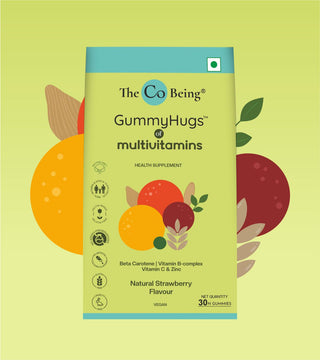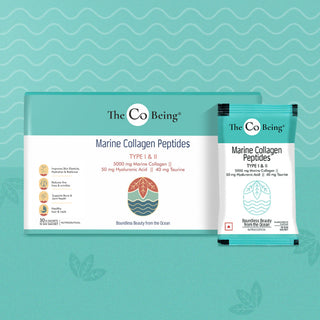Introduction | What are Probiotics | The Origins of Indian Probiotic Foods | Health Benefits of Probiotics | A Variety of Indian Probiotic Foods | Health Benefits of Indian Probiotic Foods | A Simple Recipe | Key Takeaways
Introduction
The role of probiotics in our overall health and wellness should not be underestimated. It plays an immense role in contributing to gut health and boosting our immunity. In a report published by NCBI, it was stated that the prevalence of gastrointestinal problems in India was 18%. Enhancing and improving our gut health is extremely essential. One of the best ways to do this is by incorporating probiotic foods in your daily diet.
Ignite your taste buds and nourish your gut as we embark on an exotic journey through the world of Indian probiotic foods! Brace yourself for a mouth-watering experience where tradition meets innovation and health meets indulgence. From tangy mango pickles to velvety homemade curd and from fermented rice delights to zesty chutneys, India's culinary tapestry is adorned with a treasure trove of probiotic wonders. Join us as we unravel the captivating history, delve into the science-backed health benefits, and unlock the tantalizing flavours of these gut-friendly creations. Get ready to spice up your gut health with vibrant, aromatic, and irresistible Indian probiotic foods that will leave you craving more!
What are Probiotics
Before we delve into the various foods rich in probiotics, let’s take a look at what probiotics are first.
Probiotics are like little superheroes for our digestive system. These friendly bacteria have the incredible power to promote a healthy gut and support our overall well-being. By populating our intestines with their beneficial presence, probiotics help maintain a balanced digestive environment, enhance nutrient absorption, and even boost our immune system. With their positive influence, probiotics contribute to improved digestion, reduced bloating, and increased energy levels.
Role of Probiotics in Gut Health
Probiotics play a crucial role in maintaining optimal gut health. These beneficial bacteria work wonders by creating a harmonious balance within our digestive system. By colonizing the intestines, probiotics help keep harmful bacteria in check and prevent them from taking over. They contribute to a healthy gut by aiding in the breakdown and absorption of nutrients, supporting the production of essential vitamins, and promoting proper digestion. Probiotics also help strengthen the intestinal barrier, which acts as a protective shield against pathogens and toxins. Additionally, they can assist in reducing gastrointestinal discomfort, such as bloating and gas. With their remarkable abilities, probiotics actively contribute to a well-functioning gut, promoting overall wellness and vitality.
The Co Being’s Got Gutzy is an excellent supplement to boost gut health among other beneficial features like facilitating digestion and ease issues like bloating and heartburn.
The Origins of Indian Probiotic Foods
Indian probiotic foods have a fascinating history deeply rooted in the country's rich cultural heritage. Tracing back centuries, Indian probiotics practices have been an integral part of Indian cuisine and traditional medicine systems. Traditional fermentation methods passed down through generations, played a vital role in preserving and enhancing the nutritional value of food. Ayurveda recognizes the importance of gut health and emphasizes the use of probiotic-rich foods to promote digestion, immunity, and overall well-being. Indian probiotic foods are a tribute to the knowledge and resourcefulness of the country's ancient people thanks to their historical relevance and time-honoured fermentation procedures. The difference between probiotics and prebiotics is that these are live microorganisms that, when consumed in adequate amounts, provide various health benefits of probiotics for women by improving the balance of beneficial bacteria in the gut. Prebiotics, on the other hand, are non-digestible fibers that serve as food for the beneficial bacteria in the gut, promoting their growth and activity.
Health Benefits of Probiotics
Some of the plethora of health benefits of probiotics are as listed below.
- Enhanced Digestion
- Stronger Immune System
- Mood-Boosting Magic
- Weight Management Support
- Clear, Glowing Skin
- Heart Health Booster
- Improved Mental Health
Keep reading to find out more about these advantages of probiotics in detail!
A Variety of Indian Probiotic Foods
This amalgamation of natural probiotic foods and Indian cuisine represents a harmonious blend of ancient wisdom and modern wellness, emphasizing the importance of nourishing both the body and the gut. As probiotic foods become increasingly integrated into everyday Indian meals, the culinary landscape expands, offering a myriad of possibilities to explore the symbiotic relationship between taste, tradition, and health. Prepare to tantalize your taste buds with a vibrant array of sources of probiotic-rich Indian delicacies that will take your culinary journey to new heights.
1. Yogurt (Curd)
Yogurt, known as curd in Indian households, is a versatile ingredient used in numerous dishes and enjoyed independently. This best probiotic food is associated with auspiciousness and is often served at the beginning of a meal or as part of religious rituals. Regional variations in curd-making techniques add to its diversity, resulting in unique flavors and textures across different parts of the country. From the thick and creamy curd of North India to the tangy and lightly sour curd of South India, each region boasts its distinctive style. Ayurveda, the ancient Indian medicinal system, recognizes curd as a cooling food that aids digestion. Probiotics in curd act as probiotics for weight loss and contribute to a healthy gut microbiome, supporting digestion, immunity, and overall well-being.
2. Fermented Rice-Based Foods
A delightful adventure through the diverse array of probiotic-rich foods in India. South India proudly presents its iconic dishes, idli, and dosa. Idli, soft and fluffy steamed rice cakes, and dosa, thin and crispy rice and lentil crepes, are beloved for their unique textures and flavors. Moving to the eastern region of Bengal, we encounter Panta Bhat, a traditional dish made by fermenting overnight-soaked rice in water, resulting in a tangy and refreshing culinary delight. Get ready to savour the authentic taste of fermented rice-based foods from different corners of India and be captivated by their best probiotic food’s goodness.
3. Pickles and Chutneys
Pickles and chutneys are beloved condiments in various cuisines, renowned for their vibrant flavors and ability to enhance the taste of dishes. Achar is a tangy Indian pickle that boasts probiotic-rich properties. Different states across India are known for their distinctive fermented vegetable pickles, which offer a diverse range of tastes and textures. Chutneys are flavorful condiments often made from a combination of fruits, vegetables, herbs, and spices. Some chutneys hold probiotic potential due to their ingredients and preparation methods. For instance, chutneys made with yogurt or other fermented dairy products can introduce beneficial bacteria to the gut, aiding digestion and promoting a healthy gut microbiome. Pickles and chutneys bring an extra burst of flavor to meals, and with chutneys offering their probiotic benefits, these probiotic food examples serve as a delightful accompaniment, both in taste and digestive well-being.
4. Kanji and Kombucha
Kanji and Kombucha are two probiotic beverages that have gained popularity in India for their health benefits and unique flavors. Kanji is a traditional drink from North India made by fermenting black carrots with water, mustard seeds, and other spices. Kombucha is a fermented tea beverage made by fermenting sweetened tea with a culture of bacteria and yeast known as a SCOBY (symbiotic culture of bacteria and yeast). Preparing Kanji and Kombucha at home is a relatively simple process, with the black carrots grated and mixed with water, mustard seeds, and spices, and then left to ferment for a few days. Kombucha requires brewing a batch of sweetened tea and allowing it to ferment for about a week. Incorporating Kanji and Kombucha into your diet can be a refreshing and beneficial choice. These probiotic beverages can be consumed independently as a healthy alternative to sugary drinks or paired with meals for added flavor and digestive support.
5. Miso (Soybean Fermentation)
While miso is not Indian in origin, it has gained popularity and is used in some Indian recipes. Miso is a traditional Japanese seasoning made by fermenting soybeans with salt and a specific mold called koji. It can be added to soups, stews, and dressings to introduce probiotics into your diet.
6. Kanji ke Vade
Kanji ke Vade is a traditional Rajasthani dish made during the festival of Holi. It consists of deep-fried lentil dumplings soaked in tangy and fermented mustard water, known as kanji. The fermentation process gives it its probiotic properties.
7. Dhokla
Dhokla is a popular Gujarati snack made from fermented chickpea flour. The fermentation process adds probiotic bacteria, improving gut health. It enhances the taste, texture, and nutritional value of dhokla. During the fermentation process, the bacteria consume the carbohydrates in the batter, producing lactic acid as a byproduct. This lactic acid not only adds a tangy taste but also helps in breaking down complex nutrients, making them more easily digestible. Additionally, the lactic acid bacteria produce certain enzymes and vitamins that further enhance the nutritional value of dhokla.
8. Idli and Dosa
Idli is a steamed rice and lentil cake that is a staple breakfast item in South India. The fermentation process involved in making idli batter contributes to its probiotic content.
Dosa is a thin, crispy pancake made from fermented rice and urad dal (split black gram). Similar to idli, the fermentation process involved in making dosa batter enhances its probiotic qualities.
9. Kefir
Like Miso, Kefir is not originally Indian but has gained popularity and is consumed in some parts of India. It is a fermented milk drink made using kefir grains, which contain a combination of bacteria and yeast. Kefir is known for its probiotic properties and is often consumed as a health drink.
The Co Being’s Probiotics Gummyhugs compliments your efforts along with these Indian probiotics food with its many beneficial properties.
Health Benefits of Indian Probiotic Foods
1. Promotes Gut Health
Indian probiotic foods, such as yogurt and buttermilk, contain live cultures of beneficial bacteria that help maintain a healthy balance of microorganisms in the gut. These natural probiotic foods aid digestion, improve nutrient absorption and support overall gut health.
2. Improved Digestion
Probiotics in Indian fermented foods help break down complex carbohydrates and enhance the digestion process. Indian probiotic food can alleviate digestive issues like bloating, gas, and constipation by promoting regular bowel movements.
3. Enhanced Immune Function
The probiotics found in Indian probiotic foods stimulate the immune system, helping to strengthen the body's defenses against infections, viruses, and harmful bacteria. For the immune system to work at its best, the microbiome in the gut must be healthy.
4. Increased Nutrient Absorption
Probiotic foods improve the absorption of essential nutrients, such as vitamins and minerals, by enhancing the gut's ability to break them down and make them more bioavailable to the body.
5. Potential Weight Management Benefits
Certain probiotics found in Indian probiotic foods may help regulate body weight. These probiotics for weight loss can influence appetite, increase satiety, and improve insulin sensitivity, potentially contributing to weight management efforts.
6. Lowered Risk of Allergies and Eczema
Early exposure to probiotics through Indian probiotic foods, such as yogurt, may reduce the risk of allergies and eczema in infants and children. Various sources of probiotics can modulate the immune system and promote a healthy immune response.
7. Maintenance of Vaginal Health
One of the benefits of probiotics for women is that these Indian probiotic foods, like yogurt, contain strains of bacteria that support vaginal health by maintaining a healthy pH balance and preventing the overgrowth of harmful microorganisms.
8. Potential Mental Health Benefits
Emerging research suggests a connection between the gut and the brain, known as the gut-brain axis. Indian probiotic foods may positively impact mental health by influencing gut microbiota composition and improving mood and cognitive function.
9. Overall Well-being
Incorporating these probiotic-rich foods into a balanced diet can contribute to overall well-being by supporting digestive health, strengthening the immune system, and promoting optimal nutrient absorption.
10. Helps Manage Lactose Intolerance
Indian Probiotics foods can play a beneficial role in managing lactose intolerance, a condition characterized by the inability to digest lactose. They can help produce their lactase enzyme, improve digestion of lactose, reduce symptoms, improve gut microbiota, and prevent secondary symptoms.
A Simple Recipe!
Healthy and tasty don’t go hand-in-hand? This delicious Probiotic Raitha with Fermented Vegetables is here to tell you otherwise. A quick and easy recipe that you can pair with your favourite dishes like pulao, stuffed paratha, and more to take it up a notch! You can even enjoy this by itself as an evening snack or for a quick and refreshing bite!
Ingredients:
- 1 cup homemade yogurt (with live cultures)
- 1 small carrot, grated
- 1/2 cup cauliflower florets, finely chopped
- 1/4 cup grated beetroot
- 1 small cucumber, grated
- Fresh mint leaves, for garnish
- Fresh coriander leaves, for garnish
- 1/2 teaspoon roasted cumin powder
- A pinch of salt
Preparation Time: 15 minutes
How to Make:
- In a mixing bowl, take the homemade yogurt and whisk it until smooth and creamy.
- Add the grated carrot, chopped cauliflower, and grated beetroot to the yogurt. Mix well to combine.
- Grate the cucumber and squeeze out any excess water. Add the grated cucumber to the yogurt mixture and stir.
- Sprinkle roasted cumin powder and a pinch of salt over the mixture. Mix everything together until well incorporated.
- Transfer the prepared raita to a serving bowl.
- Garnish with fresh mint leaves and coriander leaves on top.
- Serve chilled as a side dish with your favorite Indian meals or as a refreshing dip.
Enjoy the tangy and probiotic goodness of Probiotic Raita with Fermented Vegetables! Stay nourished and relish this gut-friendly delight.
Key Takeways
In conclusion, these probiotic food examples offer a fascinating intersection of rich cultural heritage and health benefits. With its diverse range of fermented delicacies like yogurt, buttermilk, pickles, and kanji, Indian cuisine has long embraced the concept of probiotics. These Indian probiotics not only tantalize the taste buds but also contribute to gut health, immune function, improved digestion, and overall well-being. As awareness grows regarding the importance of a balanced gut microbiome, understanding the difference between probiotics and prebiotics becomes crucial. By incorporating Indian probiotic foods into our diets, we can embrace a flavorful and nourishing way to support our health. So, let us savour the tangy, probiotic-rich goodness of Indian cuisine and celebrate the symbiotic relationship between taste and wellness.
So Go Ahead and Explore All That The Co Being has to offer for your Wellness Needs!




